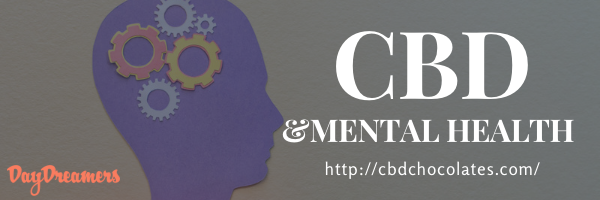
CBD and Mental Health: Exploring its Potential for Emotional Wellness
Share
Cannabidiol (CBD), a non-psychoactive compound derived from the cannabis plant, is gaining significant attention in the realm of mental health. With ongoing research into its potential benefits, many are turning to CBD as a natural supplement to support emotional wellness.
Anxiety is one of the most common mental health concerns where CBD is showing promise. Preclinical and some clinical studies suggest that CBD may have anxiolytic properties, potentially helping reduce both subjective anxiety and physiological stress responses. This could make CBD a helpful tool for managing situations that typically induce anxiety, such as public speaking.
Depression is another area where CBD is being studied. While research is in its early stages, preclinical studies suggest that CBD may have antidepressant-like effects. Its interaction with the serotonin system, a neurotransmitter that regulates mood, could be one potential mechanism behind these effects. However, more human studies are needed to confirm these findings and understand the process better.
In terms of sleep, CBD is often used to manage insomnia and improve overall sleep quality. Given that poor sleep and mental health disorders often go hand-in-hand, CBD’s potential to enhance sleep could also contribute to better emotional wellness.
Furthermore, CBD is being explored for its potential role in managing post-traumatic stress disorder (PTSD). Some preliminary studies and anecdotal reports suggest that CBD might help alleviate symptoms of PTSD, such as nightmares and replaying of negative memories.
Despite these promising findings, it’s important to remember that CBD is not a cure-all for mental health disorders. While it may be a beneficial supplement, it should not replace traditional treatments unless advised by a healthcare professional. Everyone responds to CBD differently, and what works for one person may not work for another.
Additionally, if you’re considering using CBD for mental health, it’s crucial to discuss this with your healthcare provider, especially if you’re already taking other medications. CBD can interact with certain drugs, potentially altering their effectiveness.
In conclusion, while we still have much to learn about CBD and its impact on mental health, current research suggests that it holds potential as a natural tool for supporting emotional wellness. As science continues to explore CBD’s benefits and mechanisms, we can hope for a future where its role in mental health care is better understood and even more effectively utilized.
Anxiety is one of the most common mental health concerns where CBD is showing promise. Preclinical and some clinical studies suggest that CBD may have anxiolytic properties, potentially helping reduce both subjective anxiety and physiological stress responses. This could make CBD a helpful tool for managing situations that typically induce anxiety, such as public speaking.
Depression is another area where CBD is being studied. While research is in its early stages, preclinical studies suggest that CBD may have antidepressant-like effects. Its interaction with the serotonin system, a neurotransmitter that regulates mood, could be one potential mechanism behind these effects. However, more human studies are needed to confirm these findings and understand the process better.
In terms of sleep, CBD is often used to manage insomnia and improve overall sleep quality. Given that poor sleep and mental health disorders often go hand-in-hand, CBD’s potential to enhance sleep could also contribute to better emotional wellness.
Furthermore, CBD is being explored for its potential role in managing post-traumatic stress disorder (PTSD). Some preliminary studies and anecdotal reports suggest that CBD might help alleviate symptoms of PTSD, such as nightmares and replaying of negative memories.
Despite these promising findings, it’s important to remember that CBD is not a cure-all for mental health disorders. While it may be a beneficial supplement, it should not replace traditional treatments unless advised by a healthcare professional. Everyone responds to CBD differently, and what works for one person may not work for another.
Additionally, if you’re considering using CBD for mental health, it’s crucial to discuss this with your healthcare provider, especially if you’re already taking other medications. CBD can interact with certain drugs, potentially altering their effectiveness.
In conclusion, while we still have much to learn about CBD and its impact on mental health, current research suggests that it holds potential as a natural tool for supporting emotional wellness. As science continues to explore CBD’s benefits and mechanisms, we can hope for a future where its role in mental health care is better understood and even more effectively utilized.
